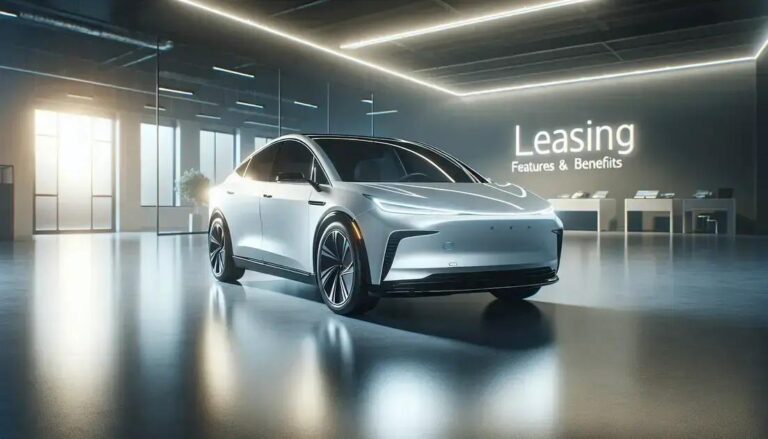Low-Cost Electric Cars Perfect for First-Time EV Buyers
Low cost electric cars for beginners are transforming the way we think about transportation. For those just stepping into the world of electric vehicles, finding an affordable and efficient model can make all the difference. These cars not only help you save on fuel costs but also offer a more environmentally friendly way to travel. Why should you consider one, and what options do you have? Let’s dive into the world of low-cost EVs and see how they fit into your lifestyle.
Understanding Electric Car Basics
Electric cars, often referred to as EVs, are vehicles powered by electric motors using energy stored in batteries. Unlike traditional gasoline cars, EVs do not have internal combustion engines. This means they produce zero emissions and are quieter, contributing significantly to reducing pollution and noise levels in urban areas.
How Electric Cars Work
An electric vehicle operates by connecting a battery to one or more electric motors. When the driver presses the accelerator, the battery provides electricity to the motors, driving the wheels. Thanks to advancements in technology, modern electric cars can travel longer distances on a single charge, with some models reaching over 300 miles per charge.
Main Components of an Electric Car
- Battery Pack: This is the powerhouse of the EV, storing electricity that powers the vehicle. Popular types include lithium-ion batteries, known for their longevity and efficiency.
- Electric Motor: Converts electrical energy from the battery into mechanical energy to move the vehicle. These motors are highly efficient and require less maintenance compared to gas engines.
- Charge Port: Allows the car to connect to an external power source for recharging. Charging stations are becoming more widespread, making it easier to recharge on the go.
Efficiency and Regenerative Braking
Electric cars are known for their energy efficiency, often converting over 60% of the electrical energy from the grid to power at the wheels, compared to about 20% for gasoline vehicles. Additionally, most EVs use a technology called regenerative braking, which recovers energy normally lost during braking and stores it back in the battery, further enhancing efficiency.
Environmental Impact
One of the biggest advantages of electric cars is their reduced environmental impact. By utilizing stored electrical energy, EVs produce no tailpipe emissions, significantly cutting down on greenhouse gases compared to conventional vehicles. This makes them a vital component in the fight against climate change.
Top Low Cost Electric Models
Choosing the right electric vehicle (EV) can be a challenging task, especially for beginners on a budget. Here are some top low-cost electric models that combine affordability with quality features.
Nissan Leaf
The Nissan Leaf is one of the most popular affordable EVs on the market. It offers a range of up to 150 miles on a full charge, making it ideal for urban commuting. The Leaf features key benefits such as a spacious interior, advanced safety features, and compatibility with many public charging networks. It’s priced competitively, starting around $31,000, and qualifies for several federal and state incentives.
Chevrolet Bolt EV
The Chevrolet Bolt EV is known for its impressive range of approximately 259 miles on a single charge. This makes it not only a cost-effective option but also highly practical for longer trips. With a starting price near $32,000, the Bolt EV offers features like a roomy cabin, quick acceleration, and a user-friendly infotainment system. Like many EVs, it benefits from available tax credits and rebates.
Hyundai Kona Electric
The Hyundai Kona Electric combines style with efficiency. It provides a range of around 258 miles per charge and includes high-tech features such as regenerative braking and a digital instrument cluster. Starting at approximately $34,000, it offers a compelling warranty and Hyundai’s reputation for durability and performance.
Kia Niro EV
The Kia Niro EV stands out for its sleek design and comfortable ride. It delivers up to 239 miles of range, making it a suitable option for both city driving and road trips. At a starting cost of around $39,000, the Niro EV is equipped with advanced safety technologies and a modern entertainment interface. It also benefits from federal incentives, which can significantly lower the effective purchase price.
Range And Performance Considerations
When evaluating electric vehicles, range and performance are crucial factors to consider. Range refers to the maximum distance an EV can travel on a full battery charge, while performance encompasses acceleration, handling, and comfort.
Understanding Range
The range of an electric car depends on several elements, including the battery size, driving habits, and terrain. For instance, a larger battery generally offers more range. Vehicles like the Tesla Model 3 can achieve ranges over 350 miles, while more affordable models such as the Nissan Leaf offer around 150 miles per charge.
Factors such as excessive acceleration or driving on hilly terrain can reduce range significantly. Using features like climate control can also impact how far you can drive on a single charge. Planning your trips and utilizing charging apps can help manage range anxiety.
Performance Metrics
Performance in EVs can be quite remarkable. Many models, such as the Tesla Model S, are known for their rapid acceleration due to the instant torque provided by electric motors. Even more budget-friendly options like the Hyundai Kona Electric promise 0 to 60 mph in about 6.4 seconds, showing that electrifying performance isn’t only in luxury vehicles.
- Acceleration: Electric motors deliver instant power, offering quick acceleration that can be exhilarating compared to traditional cars.
- Handling: The low center of gravity from the battery pack gives EVs better handling and stability.
- Comfort: The absence of engine noise makes for a quieter ride, often enhancing the comfort level in electric cars.
Charging Infrastructure
Access to reliable charging infrastructure is essential for maximizing an EV’s range and performance. Consider the availability of home charging setups and public charging networks. Fast chargers provide quicker turnaround times, enabling long-distance travel without substantial delays.
City Driving: Why EVs Shine
Electric vehicles (EVs) offer numerous advantages when it comes to city driving. Their design and technology make them an excellent choice for urban environments where traffic, efficiency, and environmental impact are key concerns.
Efficiency and Regenerative Braking
City driving involves frequent stops and starts, which can waste fuel in traditional vehicles. However, EVs are equipped with regenerative braking. This technology recovers energy generated during braking and feeds it back into the battery, enhancing efficiency and extending the vehicle’s range.
Zero Emissions and Pollution Reduction
One major benefit of EVs is that they produce zero tailpipe emissions. This is especially crucial in cities, where air quality can be compromised by vehicle exhaust. By driving electric, urban areas can see significant reductions in air pollution and greenhouse gas emissions.
Quiet Operation
City streets are often bustling with noise. EVs contribute to noise pollution reduction due to their quiet operation. The absence of a noisy internal combustion engine makes for a more peaceful driving experience and enhances the overall quality of life in busy metropolitan areas.
Compact Size and Maneuverability
Many electric vehicles are designed to be compact and easy to park, a huge advantage in cities where parking space is limited. Their nimble handling makes them perfect for weaving through heavy traffic and navigating tight urban spaces.
Cost Savings on Fuel and Maintenance
Running an EV in the city can lead to significant savings. Electricity tends to be cheaper than gasoline, and the reduced need for maintenance—thanks to fewer moving parts—means you’ll spend less time and money at the shop. Over time, these savings contribute to a lower total cost of ownership.
FAQ – Frequently Asked Questions About Low Cost Electric Cars For Beginners
How do electric vehicles benefit city driving?
Electric vehicles are ideal for city driving due to their efficient regenerative braking, zero emissions, and quiet operation, reducing both pollution and noise.
What are some affordable electric car models suitable for beginners?
Affordable electric models like the Nissan Leaf, Chevrolet Bolt EV, Hyundai Kona Electric, and Kia Niro EV offer efficiency and practical range for new EV drivers.
Why is range an important consideration for electric cars?
Range is essential as it determines how far you can travel on a single charge, influencing the convenience and practicality of long-distance and city driving.
What factors affect an electric car’s performance?
Performance is affected by battery size, electric motor efficiency, regenerative braking, the vehicle’s aerodynamics, and driving habits, all contributing to range and acceleration.
Are electric cars more eco-friendly than traditional vehicles?
Yes, electric cars produce zero tailpipe emissions and significantly reduce greenhouse gas emissions, making them more environmentally friendly than gasoline vehicles.
How does regenerative braking work in electric vehicles?
Regenerative braking captures energy that would be lost during braking and redirects it back into the battery, enhancing range and efficiency.






